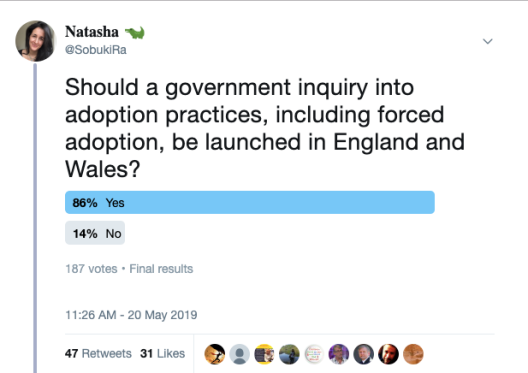High profile child welfare professionals in Britain have called on Education Minister Gavin Williamson, to launch a government review into the children’s care system in England and Wales.
The review would be the widest in scope that England and Wales have ever seen, and would allow for an investigation into the use of forced, or non-consensual adoption, which is currently only used by a small number of countries around the world.
The inquiry also hopes to emphasise the voices of children and families who have experienced the care system.
The call comes after the Conservatives promised to review the care system in its election manifesto this year.
The letter, which was authored by John Radoux, a child psychotherapeutic counsellor, has already been signed by 60 people, including the CEO of Children England Kathy Evans, Article 39’s Director Carolyn Willow, the Chair of Nagalro Sukhchandan P Kaur, and Brigid Featherstone, and asks the government to ensure that the review meets six targets:
- Creating a fully independent review, commissioned by central government but separate from the state;
- Ensuring the review is non-partisan and looks at long-term reforms supported by every party, now and in the future;
- Implementing broad frames of reference which are able to consider all aspects of children’s social care;
- Resourcing the review properly, with as much time as is needed to gather evidence and draw up reports with recommendations;
- Engaging as many voices as possible, with an emphasis on input from people who have been in care or are currently experiencing care and;
- Meeting the UK’s obligations under the Convention on the Rights of the Child and existing research and good practice.
The letter outlines the current problems inside children’s social care, acknowledges past reviews, as well as arguing for the need to investigate the challenges in a more comprehensive way, and asks the government to help reform the system so that it works in the best interests of the children it is meant to support.
Here is an extract from the letter:
“The signatories of this letter are individuals with personal or professional experience of children’s social care – some of us have both. We are writing because we fully support the need for such a review, and want to urge you to be ambitious regarding its scope. As ambitious as we should be for every child in care today, and long into the future.
When the state decides to look after a child, because he or she cannot live with family, it takes on an exceptional responsibility for that child in the most formative years of life. Unfortunately, we have been failing in this responsibility with too many children for too long. Significant concerns that have been highlighted through research, the courts and in the media over recent months, include:
Insufficient, and geographically incoherent, capacity in foster care and children’s homes to meet the needs of increasing numbers of children; rising numbers of children being moved too far from their local areas; children and young people living in unregulated homes; rising care bills contributing to ubiquitous council ‘overspends’ alongside concerns about profit-extraction by private equity companies; insufficient specialist therapeutic care (including secure provision) for very traumatised and/or vulnerable children; disproportionate numbers of children in care and care leavers in custody; children being moved chaotically to different foster and children’s homes multiple times – too often in double digits. These problems, and there are many more in children’s social care, have been known to most of us for years – indeed, experienced as a painful reality by some of us as children.
The unpalatable truth is this: many thousands of children are being harmed by a system intended to protect, nurture and care for them. Harmed by inadequate or inconsistent care, harmed by the lack of stable, ongoing relationships as they are moved around the care system and into adulthood, harmed by the abuse and exploitation they are made vulnerable to. This has to change – we, as a society, must do better.”
You can read, and sign, the letter, here.
Tweet with John Radoux at @JohnRadoux.











